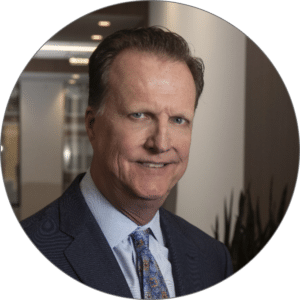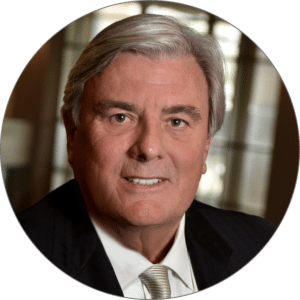
Feras Asakrieh’s Due Diligence Set Him Up For Success.
By Neill Marshall, Chairman, HealthSearch Partners and Kurt Mosley, Associations Practice Leader, HealthSearch Partners

Feras Asakrieh (pictured above) is on a mission to help corporate employees think and act like entrepreneurs, empowering them to advance their careers faster and more effectively. Born in Dubai, he moved to Florida 20 years ago. Over the past 23 years, he has built three companies from the ground up into multi-million-dollar businesses. He is currently Head of VIP Sales and Customer Experience for Fanatics, Inc. in Jacksonville, FL. Prior roles have included sales and customer service roles for CSX in Jacksonville, co-founder of Rayanco, Inc., sales and customer experience roles with Citi, and senior manager of operations for Paychex. He earned a bachelor’s degree in accounting and finance from the University of Jordan, a master’s degree in business administration from Nova Southeastern University, and he is a graduate of the Business Leadership Program from the University of Maryland Robert H. Smith School of Business.
In our continuing series on First 90-day leadership strategies, this article features Feras Asakrieh, former Vice President of Sales and Customer Service for a nationwide U.S. bank. While this is our first focus on executives outside of healthcare, we hope you’ll see the tactics he employed can be applicable to executives sitting in a healthcare organization’s c-suite.
Turning his attention to one of his areas – the escalation department – Asakrieh decided to go undercover for the first 60 days to live the customer and call agent experience first-hand.
Using his wife’s and friends’ accounts, Asakrieh mystery shopped, connecting with his call center using different names and presenting with different issues — lost passwords, account disputes, fraudulent charges, and more. He experienced firsthand what customers dealt with day in and day out. He also sat on the call center floor among the center’s 300 employees, wearing a headset and taking calls from customers, just like any agent. No fanfare. No special treatment. Just doing the job.
Immediate results led to positive impacts
Almost immediately, Asakrieh began to see positive results from his actions:
- He built immediate trust with the front line.
- He identified broken processes others had missed.
- He spoke with authority to the bank’s C-suite — not from a report, but from his experiences.
Within a year, Asakrieh’s Jacksonville, FL, escalation center catapulted from last place to first place nationally. His strategy to pose as an escalation center agent and take calls from customers soon spread among executives across the organization. Ultimately, he earned the company’s highest leadership award, attending a leadership summit with the CEO, a career-defining moment.
Visible tactical shifts result from “undercover” work
Asakrieh’s approach of quietly listening and observing before acting resulted in two major changes in escalation center operations:
- Ownership over transfers: Agents were trained and incentivized to solve customer problems instead of transferring them to someone else.
- No-repeat story rule: If a transfer was necessary, the agent, not the customer, explained the issue to the next representative—preventing customers from having to repeat their issue multiple times.
Bottom line: Simple fixes. Huge impact. Customer Retention.
Refining his formula for success – mutual 90-day plans
When Asakrieh left his position with the bank, he assumed a leadership position with a large supply chain company. Building on the lessons he learned at the bank, he launched a new strategy that emphasized collaboration, consensus-building, and aligning expectations. His tactics were simple, yet effective:
- He developed a written 90-day plan that identified what he would learn, explore, fix, and build.
- He asked each of his direct reports to create their own 90-day plans with a focus on what they wanted Asakrieh to understand about their jobs and their goals.
- Together, Asakrieh and his direct reports compared notes, aligning expectations early and openly.
“It was like dating,” Asakrieh joked. “You learn what matters to them, and they learn what matters to you.”
What results did his approach deliver?
- Trust was built early.
- Hidden landmines surfaced quickly.
- Faster impact was achieved without stepping on the wrong toes.
- The team’s goals and objectives were aligned.
Takeaways From Asakrieh’s Playbook for Executives in Their First 90 Days
Asakrieh’s playbook is clear:
- Experience it yourself: Get as close to the customer and frontline as possible.
- Seek to understand before you fix: Avoid making surface-level changes without seeing the whole system.
- Lead transparently: Show your agenda and invite others to shape it with you.
- Fix problems bottom-up, not top-down.
“Everyone says ‘seek to understand but very few actually do it,” Asakrieh says.
“If you get it right in the first 90 days, you lay a foundation people will trust for years.”
Can Hospital Executives Apply Asakrieh’s Strategies? Absolutely.
Imagine a new hospital CEO spending part of his or her first 60 days living the patient and staff experience—rounding without fanfare, shadowing frontline teams, calling into patient billing lines, and eating in the cafeteria unannounced. Not through a scheduled visit or a report—but firsthand, under the radar, alongside the people who deliver care every day.
Pair that with open 90-day plans shared with department chiefs and clinical leaders—inviting collaboration, participative goal setting, identifying hidden problems, and setting mutual expectations early.
In an environment where trust, culture, and operational insight are everything, this approach could redefine how healthcare leaders integrate, build credibility, and drive real change from day one.
Stay tuned for more insights as we continue exploring the innovative tactics used by leaders to make their first 90 days count.
If you have adopted any of the tactics featured in this series, we’d love to hear from you. Please contact us to share your story.

